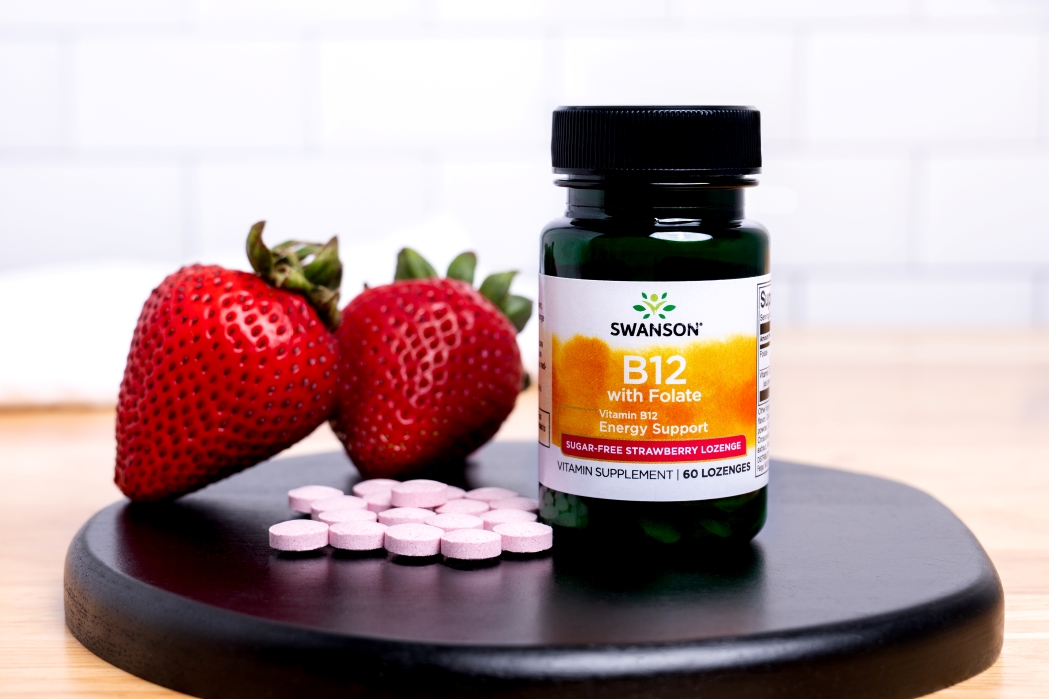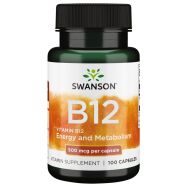Vitamin B12: Your complete guide to an essential nutrient

What is vitamin B12 and why is it important for our health?
Vitamin B12, also known as cobalamin, is a vital nutrient that plays a crucial role in the body for maintaining overall health and well-being. It is a water-soluble vitamin that belongs to the B-complex family, and its importance cannot be overstated. Vitamin B12 is essential for numerous bodily functions, including the production of DNA, red blood cells, and energy metabolism. It is involved in the formation of myelin, a protective sheath that covers nerve fibres and ensures proper nerve signalling. Additionally, B12 is crucial for the synthesis of neurotransmitters that regulate mood, cognitive function, and sleep patterns. Adequate levels of vitamin B12 are necessary for the maintenance of a healthy cardiovascular system, as it helps in regulating homocysteine levels and reducing the risk of heart-related issues. Deficiency of vitamin B12 can lead to various health problems, including anaemia, fatigue, neurological disorders, and compromised immune function. Therefore, understanding the importance of vitamin B12 and ensuring its adequate intake is crucial for supporting optimal health and well-being.
What are the health benefits of vitamin B12?
Vitamin B12 offers a wide range of health benefits that contribute to overall well-being. One notable advantage is its role in improving energy levels and metabolism. By participating in the conversion of carbohydrates into glucose, B12 helps provide the energy our bodies need for optimal functioning. Furthermore, adequate levels of B12 have been associated with enhanced cognitive function and mood stabilization. This essential vitamin plays a crucial role in the synthesis of neurotransmitters, such as serotonin and dopamine, which are responsible for regulating mood, memory, and concentration. Additionally, vitamin B12 supports cardiovascular health by helping to regulate homocysteine levels, reducing the risk of heart-related issues. Furthermore, it plays a vital role in maintaining a robust immune system, as it supports the production of white blood cells that defend against pathogens and harmful substances. The health benefits of vitamin B12 are diverse, making it an essential nutrient for overall health and vitality.
Sources of Vitamin B12
Vitamin B12 can be obtained from various dietary sources, including animal-based foods, plant-based foods, fortified products, and supplements. Animal-based sources such as meat, fish, and dairy products are rich in this essential vitamin. Beef, poultry, liver, shellfish, fish (such as salmon and trout), eggs, and dairy products like milk, cheese, and yogurt are excellent choices for those following an omnivorous diet. For individuals following a plant-based or vegetarian diet, it is important to note that vitamin B12 is not found naturally in food sources like fruit, vegetables and grains. Plant-based sources like fortified breakfast cereals, plant-based milk alternatives, and nutritional yeast can provide adequate levels of vitamin B12. These plant-based options are often fortified with vitamin B12 to ensure adequate intake. Additionally, vitamin B12 supplements are available in various forms, including capsules, tablets, and sublingual forms. You can read our complete guide to vitamin B12 supplements here. In cases where dietary sources or absorption are limited, B12 injections may be recommended under the guidance of a healthcare professional. It's important to note that the recommended dietary allowances (RDAs) for vitamin B12 intake may vary depending on factors such as age, gender, and life stage. According to the UK NHS, the RDA for adults is approximately 1.5 micrograms per day, but individual requirements may differ. Always be aware that consuming too much vitamin B12 may cause undesirable side effects, which you can find out more about here.
Vitamin B12 Deficiency: The Signs and Symptoms
Vitamin B12 deficiency can manifest in various ways, and recognizing the signs and symptoms is crucial for early intervention. One common indication is fatigue and weakness, as B12 plays a vital role in energy production. Individuals may experience persistent tiredness and a lack of energy. Another symptom to watch out for is numbness or tingling in the extremities, such as the hands and feet. This occurs due to B12's involvement in maintaining a healthy nervous system. Memory problems and difficulty concentrating are also potential signs of deficiency, as B12 is essential for cognitive function. Additionally, pale or yellowish skin can be a visible sign, resulting from the impaired production of red blood cells. Overcoming B12 deficiency typically involves dietary adjustments to include more B12-rich foods or supplementation, depending on the severity and underlying cause. Consulting a healthcare professional is important for proper diagnosis and guidance on the most appropriate treatment approach.
Vitamin B12: To summarise...
In conclusion, Vitamin B12 is a crucial nutrient with numerous benefits for overall health and well-being. Its role in energy production, cognitive function, cardiovascular health, and immune system support highlights its significance in maintaining optimal wellness. Understanding the best sources of B12, whether from animal-based foods, plant-based options, fortified products, or supplements, can help ensure adequate intake. Recognizing the signs and symptoms of B12 deficiency is essential for early intervention and seeking appropriate guidance from healthcare professionals. At Bigvits, we offer a wide range of high-quality B12 supplements to support your nutritional needs. Explore our selection and take a step towards optimizing your health. For further information on specific aspects of B12, check out our articles on topics such as Vitamin B12 Deficiency, B12 supplements, or browse all of our B12 related blogs here. Take control of your health and incorporate the power of Vitamin B12 into your daily routine.
Reference
Office of Dietary Supplements - National Institutes of Health. (2021). Vitamin B12 Fact Sheet for Health Professionals. Retrieved from https://ods.od.nih.gov/factsheets/VitaminB12-HealthProfessional/
Watanabe, F. (2007). Vitamin B12 sources and bioavailability. Experimental biology and medicine (Maywood, N.J.), 232(10), 1266–1274.
Pawlak, R., Parrott, S. J., Raj, S., & Cullum-Dugan, D. (2013). How prevalent is vitamin B(12) deficiency among vegetarians?. Nutrition reviews, 71(2), 110–117.
Gominak, S. C. (2016). Vitamin B-12 deficiency in health and disease: Chronic cough and fatigue with vitamin B-12 repletion. Sleep science (Sao Paulo, Brazil), 9(2), 84–89.
Reynolds, E. (2006). Vitamin B12, folic acid, and the nervous system. The Lancet Neurology, 5(11), 949-960.
NHS. (2019). Vitamins and minerals - B vitamins and folic acid. Retrieved from https://www.nhs.uk/conditions/vitamins-and-minerals/vitamin-b/
Watanabe, F. (2007). Vitamin B12 sources and bioavailability. Experimental biology and medicine (Maywood, N.J.), 232(10), 1266–1274.
Pawlak, R., Parrott, S. J., Raj, S., & Cullum-Dugan, D. (2013). How prevalent is vitamin B(12) deficiency among vegetarians?. Nutrition reviews, 71(2), 110–117.
















